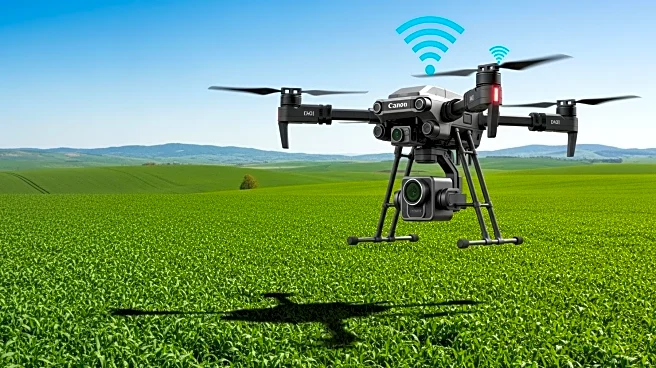What is the story about?
What's Happening?
AI is revolutionizing precision agriculture by enabling farmers to optimize crop yields, reduce resource wastage, and minimize environmental impact. By 2025, AI applications in agriculture are expected to increase crop yields by up to 30% globally. Precision agriculture leverages detailed site-specific data and intelligent technologies to manage crops, soil, and resources more efficiently. AI-driven platforms allow farmers to make data-driven decisions quickly, ensuring the right actions are taken at the right time for every field. These applications focus on processing vast data sets collected from satellites, drones, field sensors, and connected devices, generating actionable insights for farmers.
Why It's Important?
The adoption of AI in agriculture is crucial for addressing global food security and environmental sustainability challenges. As the global population rises and climate change impacts traditional agricultural practices, AI offers solutions for smarter, more efficient, and ecologically responsible farming. By optimizing resource use and reducing environmental impact, AI helps farmers increase productivity while conserving natural resources. This technological advancement benefits smallholders, governments, and global food corporations, aligning sustainability, efficiency, and profitability in agriculture.
What's Next?
The future of AI in agriculture includes advancements in genomics-driven breeding, climate resilience modeling, and integration with blockchain for improved traceability and transparency. As AI technology continues to evolve, it will become indispensable for optimizing productivity and fulfilling global commitments to environmental responsibility. Stakeholders will focus on expanding AI applications to enhance agricultural practices and improve food production efficiency.
Beyond the Headlines
The ethical considerations of AI in agriculture involve data privacy and security, as well as the need for training and technology literacy among farmers. Ensuring equitable access to AI tools and addressing connectivity and infrastructure challenges are essential for widespread adoption. The cultural shift towards technology-driven farming may require education and support for farmers to adapt to new methods.















